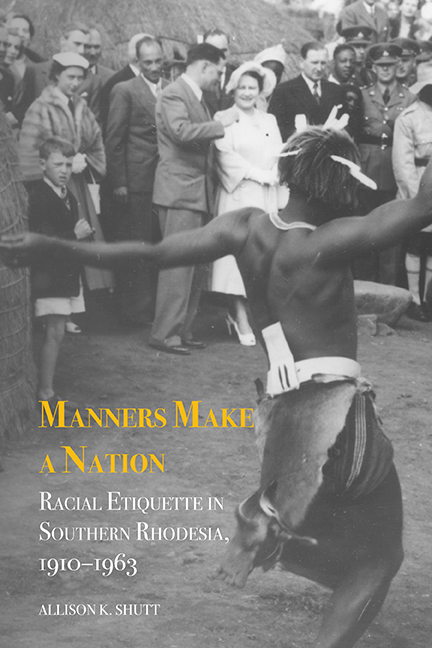6 - Manners Make a Nation
Published online by Cambridge University Press: 04 June 2021
Summary
The collapse of the federation reinforced for many whites their feelings that they had been polite and tolerant toward Africans. Some federal offi- cials, for instance, wanted to publicize the rudeness of the departing delegation of Nyasaland ministers to highlight the “boorish manners of people who are alleged to be leaders of this country.” “Noblese oblige may be an unfamiliar tenet to certain members of the Nyasaland Legislative Council,” one official fumed, “but there would seem to be no reason why an endeavour should not be made to remind them that their responsibilities entail obligations and require courtesies which, if they regard themselves as being fit to govern, it behooves them to learn.” By 1964 Nyasaland had become independent Malawi, while Northern Rhodesia became the new state of Zambia. Southern Rhodesia, however, did not attain independence—a reality that greatly frustrated nationalist Africans and whites alike.
In important ways, the 1962 campaign in Southern Rhodesia was a referendum among whites on whether racial etiquette could contain African nationalism and preserve white privilege. The ruling UFP argued that repealing the Land Apportionment Act and bringing down the color bar would help grow the economy and dampen African enthusiasm for nationalism and Pan-Africanism. Amending the color bar would also satisfy powerful outsiders such as the British, the United States, and the United Nations and so prevent them from meddling in Southern Rhodesian affairs. The Rhodesian Front (RF) argued that the Land Apportionment Act was essential to the white way of life and smooth race relations; Africans and whites could be courteous and respectful of one another only if they lived separately.
Recalibrating Racial Etiquette
The 1962 election campaign that brought the Rhodesian Front to power under Winston Field was full of invective, fear-mongering, racial slogans and a great deal of rude politics. Larry Bowman argues, “the intensity of white debate was a symptom of white strength, not real disunity.” Indeed, there was not much difference between the parties from the African nationalist point of view: neither the ruling UFP or the RF advocated majority rule or even a major role for Africans politically.
- Type
- Chapter
- Information
- Manners Make a NationRacial Etiquette in Southern Rhodesia, 1910–1963, pp. 170 - 180Publisher: Boydell & BrewerPrint publication year: 2015



